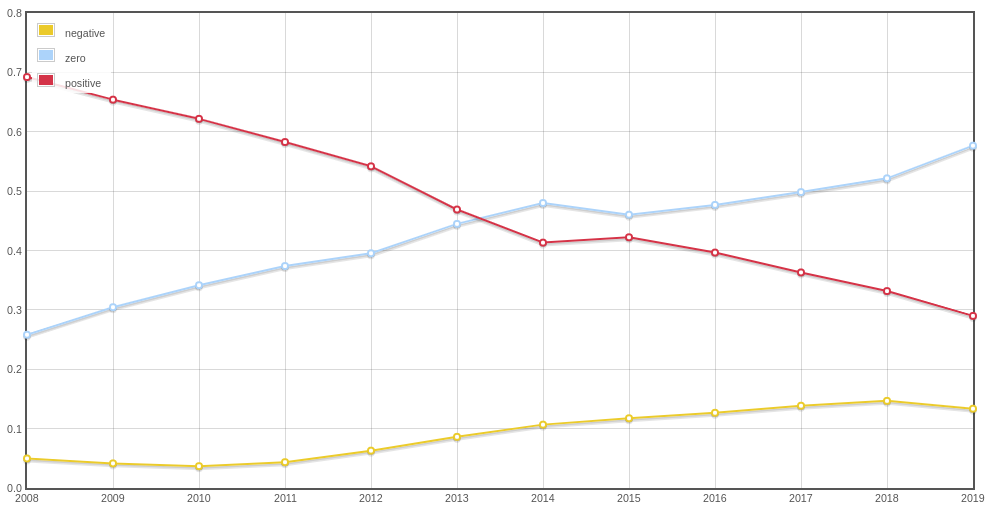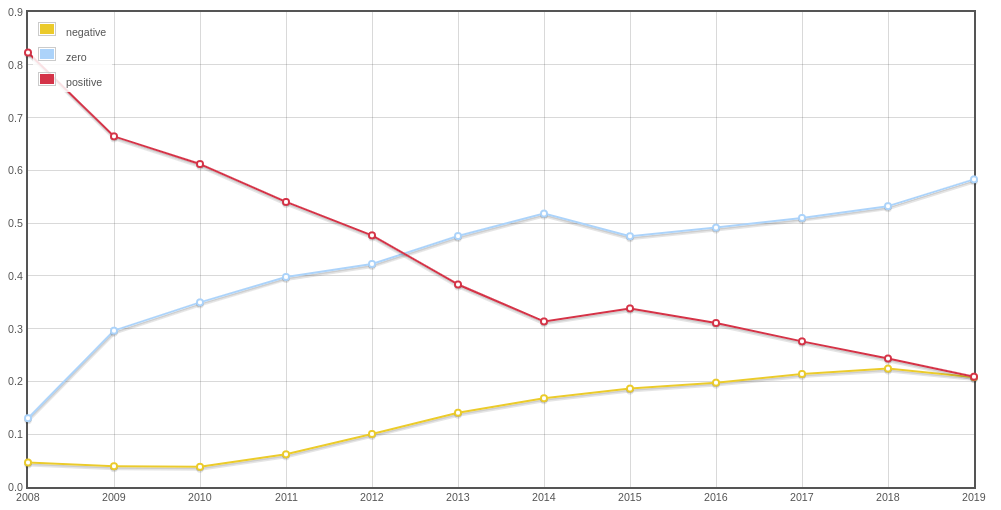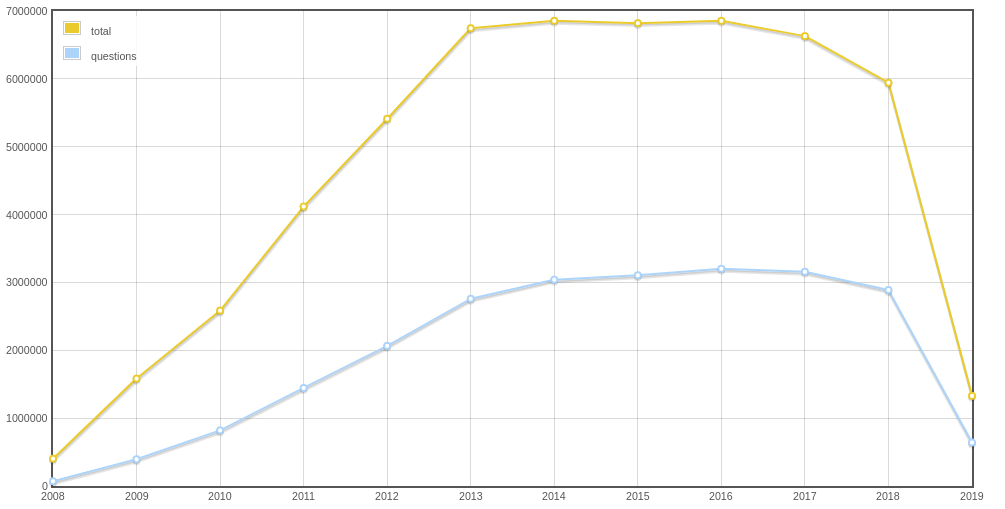It would be interesting to see the public statistics of (un) answered questions on Stack Overflow during last 2-3-4 years. How many questions are being answered, per period of time? Which percent of them were answered by topic starter? And so on.
I judge by my own participation. I rarely use Stack Overflow, only if I'm completely stuck with the problem. Back in 2012-2014 most of my questions at least attracted attention and users were really helpful. It encouraged to help other people as well. Nowadays among 20 last questions only one was answered correctly by other user, several questions were answered by myself, the rest just left without attention.
Have I become a more boring person since 2012 so that I can't clearly explain my problem, or has the Stack Overflow community changed?
I know Stack Overflow had Data Mining team, it would be interesting to see some data on public.


